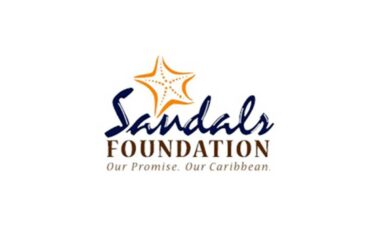U.S. civil rights groups have received a surge of corporate donations since a Minneapolis police officer killed George Floyd, transforming the fortunes of some of the organizations hit hardest by the COVID-19 crisis.
A Financial Times review of statements from U.S. companies found more than $450 million in pledges to groups focused on social and racial justice, which typically depend more on individual donations, often from people in disadvantaged communities.
Walmart and its foundation promised to put $100 million into a new racial equity centre; Warner Music and Sony Music announced $100 million funds with few details attached; and Nike pledged $40 million to various organizations.
Amazon, Facebook, Google and Spotify announced donations of $10 million or more, with Apple giving undisclosed amounts to groups including the Equal Justice Initiative. Goldman Sachs, Target, United Health and Verizon’s foundation each gave $10 million.
Jacob Harold, executive vice president of Candid, which studies non-profits and foundations, says it tracked $232 million in donations to racial equity groups since Floyd’s death — almost as much as they receive in a typical year.
The influx has come as the COVID-19 pandemic has plunged charities into crisis. After a decade of growth, many have seen donations collapse, their investments shaken and demand for their services soar. Half have less than six months of cash, says Harold.
The Center for Effective Philanthropy (CEP) will report on Monday that 80 percent of non-profits have tapped or expect to tap their reserves and those working on racial equality have been particularly affected.
“This comes at a time when so many non-profits, especially those working with marginalized and vulnerable communities, including communities of colour, are absolutely reeling,” says CEP President Phil Buchanan.
“In the business world, revenues go up and down as demand goes up and down, but if you’re a frontline non-profit working with a vulnerable population, your demand increases in this crisis as your revenue decreases,” Buchanan notes.
Rick Cohen, chief operating officer of the National Council of Non-profits (NCN), says charitable groups have been “hit from all angles,” with fundraisers cancelled and gifts drying up as unemployment leaps. Organizations focused on civil rights, racial equality and bail bonds are seeing “astronomical demand,” he adds.
Beyond larger civil rights organizations, such as Black Lives Matter and the NAACP, the giving has filtered down to smaller groups, which say they have seen a huge spike in online donations as well as offers of corporate money and partnerships.
The Black Voters Matter Fund raised more than $200,000 in a week, raking in roughly 500 times its typical number of daily contributions. “We’re still wrapping our heads around it,” says Alexis Buchanan, its development manager.
The Advancement Project says celebrities’ tweets helped it raise $520,000 from 50,000 online donors — more than 10 times its entire 2020 digital fundraising goal.
“As a racial justice organization that’s led by a Black woman, we don’t typically have the same access to philanthropy,” says Andi Ryder, managing director of development for the Advancement Project.
Buchanan says that Black Voters Matters is not afraid to turn down checks.
“We are very discerning with who we want to partner with,” she says. “You will find in this kind of crisis you do have corporations who want to jump on the bandwagon” or are “looking for a photo op.”
There was “reason for healthy scepticism” about companies’ motives, Buchanan says: “Often there’s a significant public relations angle to what is being committed.”
Non-profits’ need to partner with companies committed to their missions has prompted some to stick with established partners.
“It’s much harder for us to engage with a company that we’ve only heard from today,” says David Johns, executive director of the National Black Justice Coalition, which has worked with Sephora and Walmart.
The National Coalition on Black Civic Participation received a $1 million-plus grant from Verizon — a company that has spoken out on criminal justice issues in the past — and is in talks with three or four others, says Melanie Campbell, its president. Companies also need to provide “practical day-to-day support to families to get through these crises we’re in,” she adds.
A Morning Consult poll last week found strong public backing for companies donating to social justice causes, but while there was a net 36 percent support among Black adults, the net approval among white adults was half that level.
The recipients of such funds also run risks, according to NCN’s Cohen, who says that windfalls can both enhance an organization’s capacity and increase pressure on it to spend the money quickly rather than pace its spending for a long fight against entrenched challenges.
U.S. companies’ philanthropic response to public uproar over racist policing still pales in comparison with the $11 billion they have committed to the COVID-19 crisis, Candid’s Harold says, and CEOs are being told that more will be expected than donations alone.
Darren Walker, president of the Ford Foundation, told CNBC that just writing checks “is not going to work this time because more is going to be demanded of corporations,” noting rising pressure for CEOs to support tangible policy changes.
Doug McMillon, CEO of Walmart and chairman of the Business Roundtable lobbying group in Washington, said companies should look for “leverage points” where they could shape policy.
“Charitable giving is important,” McMillon told CNBC, “but that’s not enough and this conversation’s got to be longer term and more lasting.”














